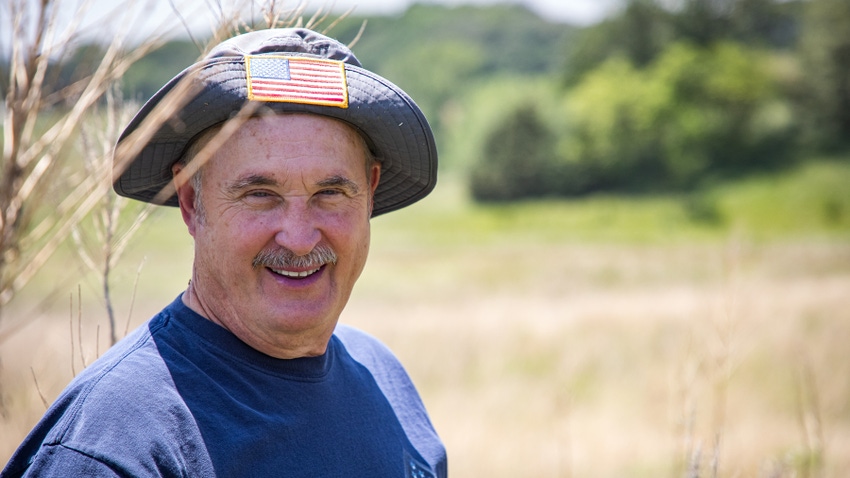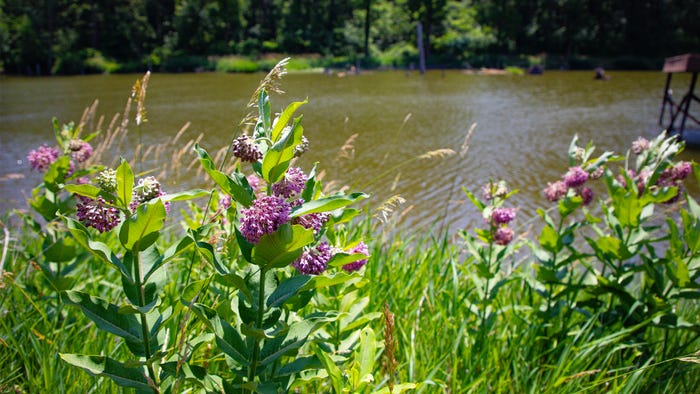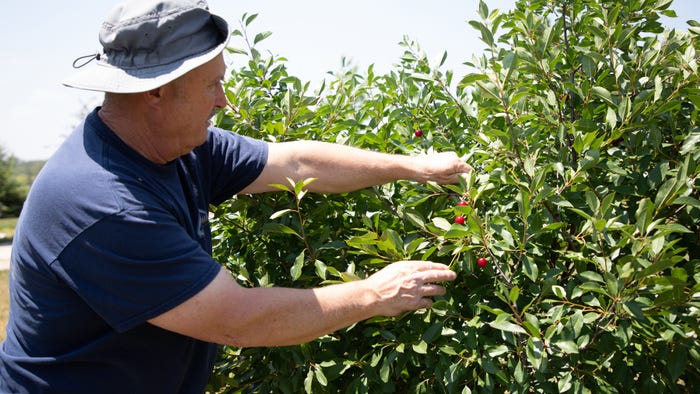February 15, 2024

by Jolene Bopp
“Mother Nature provides its own movie. Whether it is the trees falling or new growth, there is always something to look at.” — Mike Ziemba
This quote sums up the beliefs of Mike Ziemba, a Vietnam veteran who transformed 40 acres in Harrison County, Iowa, into a sanctuary for peace and personal recovery. The result is an environmental stewardship and community service connection that represents hope and healing for wildlife and people.
Ziemba began his journey while recovering from the aftereffects of serving in the Vietnam War. He knew he needed changes in his life to heal from post-traumatic stress disorder. He sought a place where he could find peace and enjoy activities like fishing and hunting.
Building a plan
When he found his property, it was barren and used mostly for hay production. Ziemba began planting trees on his own to improve the timberline. This success led him to working with staff from the local USDA Natural Resources Conservation Service and other organizations to see what could be done to build a long-term conservation plan.
As Ziemba became more involved with conservation and restoring his property, he embarked on a wildlife habitat management project with NRCS. In 2020, he used funding from the NRCS Environmental Quality Incentives Program to implement herbaceous weed treatment and conservation cover on his land. The projects will benefit wildlife and address resource concerns, such as soil health, erosion and water quality.
Herbaceous weed treatment involves removing or controlling invasive, noxious and undesirable plants to enhance or restore plant communities for wildlife. Conservation cover is establishing permanent vegetative cover on land to treat a resource concern, such as soil erosion and water quality degradation, or to enhance wildlife habitat. But Ziemba quickly realized his new project was helping more than just wildlife.
“I started realizing that conservation and watching things grow gave me peace and began to help my recovery,” he says. “Imagine the meditation it takes to plant 500 trees. I did it all. Everything that is planted is by me.”

MONARCH HABITAT: Milkweed that lines a pond on Ziemba’s property serves as habitat for Monarch butterflies.
Ziemba’s new plantings of trees, native flowers and grasses attract wildlife by providing food and shelter. He has also planted apple trees, persimmon trees, blackberries, raspberries, gooseberries and Chinese chestnuts that draw deer, turkey, monarchs and birds that are typically found in Iowa’s prairies.
He didn’t stop there. Ziemba enjoys experimenting and finding new ways to build the natural landscape. Part of his process involves reaching out to conservation organizations and other experts to hear their thoughts, and then using the information to create a plan unique to his property.
“Working with NRCS and other organizations has been really cool,” Ziemba says. “I know I can call them anytime, and they will provide me with ideas and information about practices.”
To open tree canopies, Ziemba uses hinge-cutting in certain areas to knock trees down lower to the forest floor without killing the tree while providing deer with food and cover. And the increased sunlight encourages new growth.
Growing a community
As the trees and grasses grow, so does Ziemba’s community. He now leverages his property as a place for others to connect and heal. He believes conservation is something to be shared with future generations and fellow veterans. Families visit to walk the trails and enjoy the flora and fauna. He also hosts an annual barbecue and fishing event for veterans. It’s more than a social gathering; for many of the veterans, it’s a time to share experiences, connect and enjoy therapeutic benefits from nature.

FRUIT FILLED: Cherry bushes line Ziemba’s wildlife habitat on his property.
“I look at hosting others as selfish because it’s therapy for me,” Ziemba says. “Seeing other people smile and enjoying the hard work put into it is what motivates me to continue doing what I am doing.”
Through conservation, Ziemba overcame adversity and has made a lasting impact on his land and his community. His contributions to conservation and community are bound to create a legacy of hope and renewal for generations.
For more information about conservation planning and programs to build your sanctuary, visit your local NRCS office or go to nrcs.usda.gov/ia.
Bopp is a public affairs specialist for NRCS in Des Moines, Iowa.
Read more about:
Mental HealthYou May Also Like




